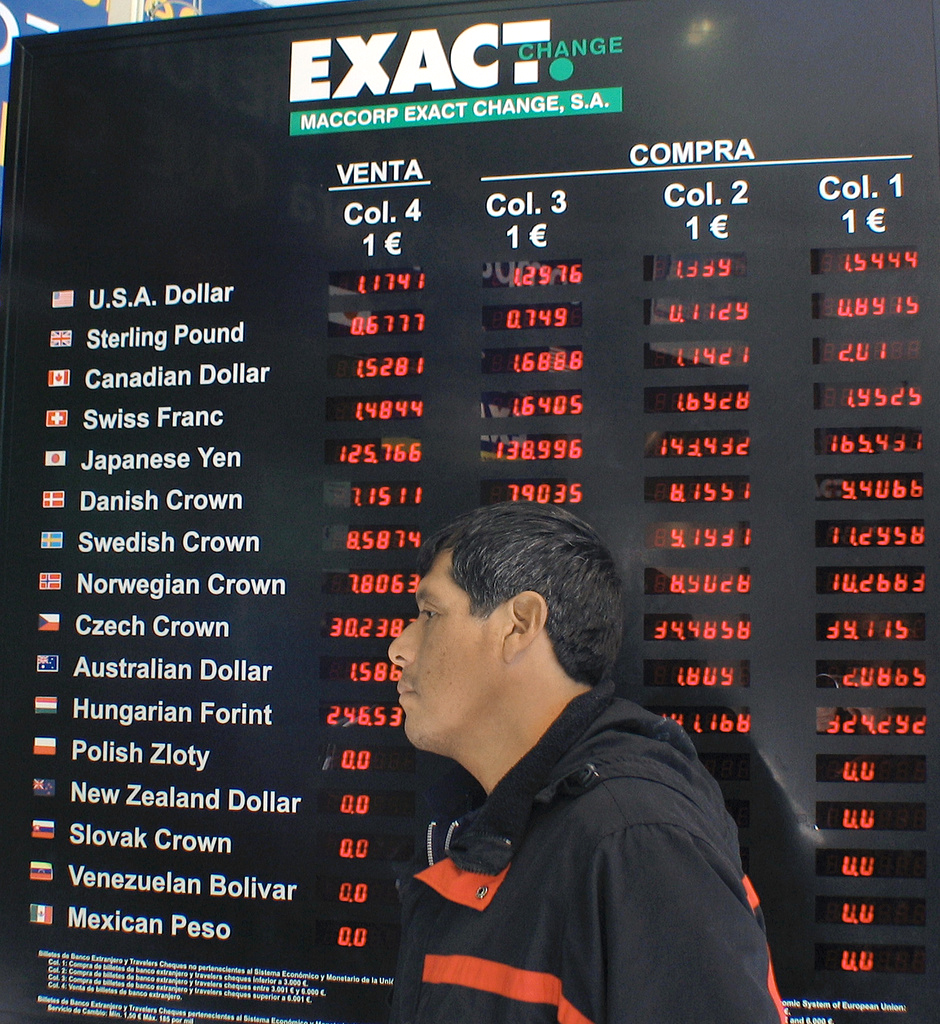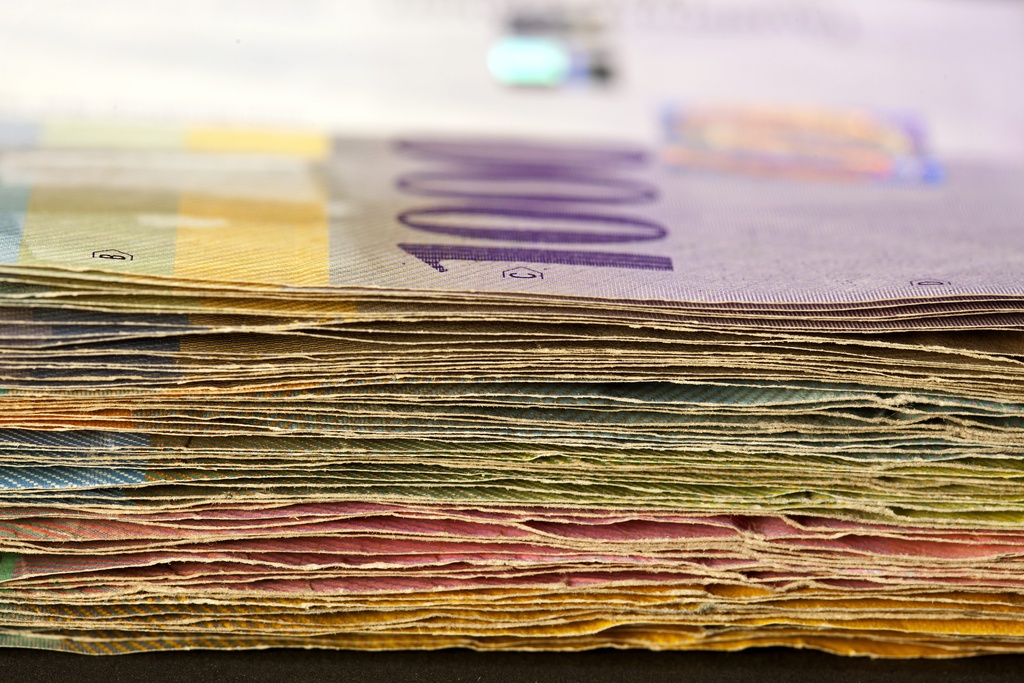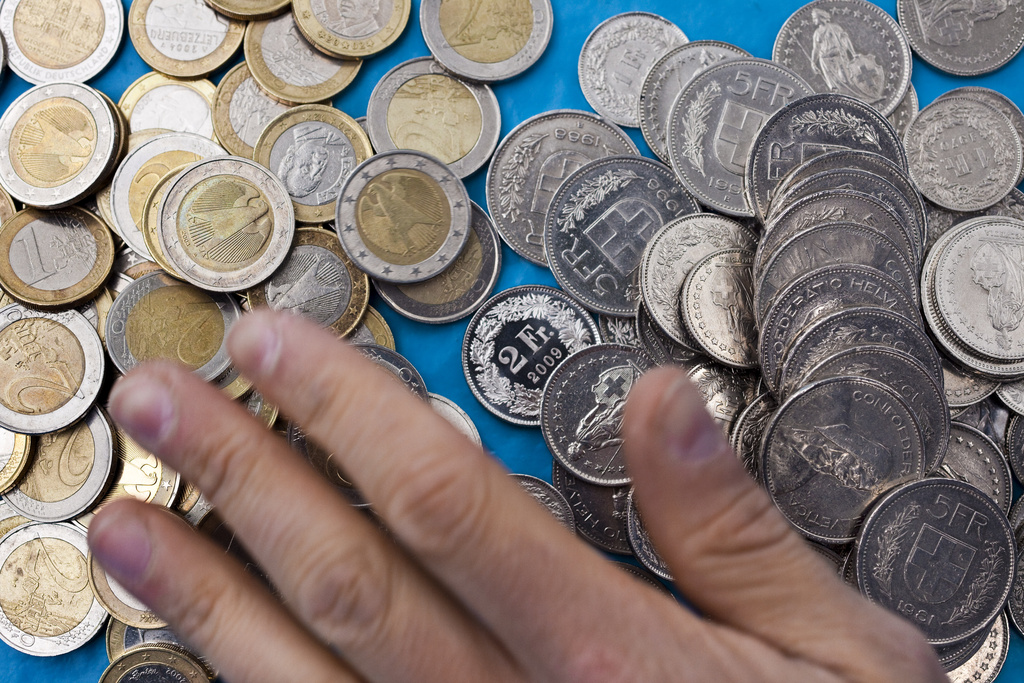Switzerland hit by currency devaluation race

Switzerland’s hand is becoming increasingly weakened as the global poker game of currency devaluation gathers pace.
Swiss exporters are already facing the double whammy of a franc strengthening against the euro and the dollar. And there are signs of more trouble as the United States, China, Japan and other nations signal further currency weakening.
Recent weeks have seen a spate of statements from around the world indicating future rounds of quantitative easing – central banks printing more money to stop currencies from appreciating.
China, long criticised for keeping the renminbi low, argued this week that allowing the currency to appreciate would hit manufacturing profits and cause chaos to the economy.
The United States Federal Reserve is widely expected next month to flood its market with more printed money. Japan recently ended a six year hiatus on currency intervention and has threatened a repeat trick.
Swiss intervention
Countries as far flung as Thailand, Britain, Brazil, South Africa, India and South Korea are threatening to join the devaluation race. The reasons for quantitative easing range from stimulating national economies with more credit, preventing deflation to protecting the interests of exporters.
The Swiss National Bank (SNB) embarked on a euro buying spree between March 2009 and June of this year, racking up a paper loss of SFr14.3 billion ($14.8 billion). The SNB defended its actions, saying it slowed the appreciation of the franc thus saving jobs and keeping the economy on track.
But Switzerland’s relative economic strength and stability in a volatile world has attracted more investors to the franc, which hit a record high of just above SFr0.96 against the dollar this week and is hovering in the mid SFr1.30s against the euro.
Not only is this trend raising the price of Swiss goods exported abroad, firms are often outflanked by the breakneck speed of currency fluctuations, according to Swissmem that represents machinery and electronics manufacturers.
“The big problem for Swiss exporters is the speed that exchange rates have changed,” Swissmem spokesman Ivo Zimmermann told swissinfo.ch. “The euro depreciated so quickly that it was difficult for companies to react with measures to dampen the effects.”
Double jeopardy
UBS bank’s head of foreign exchange research, Thomas Flury, believes more currency volatility is just around the corner.
“Currency devaluation tends to come in waves and we see another wave coming because the US Federal Reserve has announced it would come in with another round of quantitative easing if the US economy should falter,” he told swissinfo.ch.
That would create two major problems for Switzerland. Firstly, it would place greater pressure on the franc if the dollar’s position as a traditional alternative safe haven currency is further eroded.
“When the global economy turns sour we usually see the dollar appreciating as demand increases for the currency,” said Flury. “But the Federal Reserve is effectively taking away this safety net by printing more dollars.”
Secondly, many Asian and Middle Eastern currencies linked to the dollar would also dip, thus further hitting Swiss exporters that are trying to diversify away from the euro zone. Swissmem members export some nine per cent of their goods to the US, but around a fifth of their market is susceptible to a drop in the value of the dollar.
United front unlikely
Members of the International Monetary Fund, including Switzerland, meet this weekend to discuss, among other matters, currency volatility. But hopes of a coordinated response to the increasing problem appear to hinge on the seemingly forlorn hope that the US and China can resolve political differences on the issue.
“Every country has its own domestic economic problems and everyone is looking inwards at their own situation,” Julius Bär chief economist Jan Willem Acket told swissinfo.ch. “But a devaluation race is not going to be very helpful.”
The Swiss National Bank is running out of options for defending the franc. Having only managed to slow down the appreciation of the franc against the euro through intervention, the prospect of the SNB taking on the dollar and a host of other powerful currencies simultaneously is remote, to say the least.
And many observers believe the bank can ill-afford further dents to its reputation by stuffing its balance sheet with many more “assets” – foreign currencies – that could turn sour and result in more losses during volatile market conditions.
“We are not asking the SNB to intervene again as history shows that while there may be short term positive effects, such measures are not sustainable,” said Swissmem’s Zimmermann.
The Swiss franc’s traditional status as a safe haven currency was boosted during the latest recession by the relative strength of the Swiss economy compared to other countries.
In December of last year, a single euro cost SFr1.50, but has set the Swiss back around only SFr1.35 in recent weeks. The franc is also trading at below SFr1 per dollar.
The Japanese yen and the Australian and New Zealand dollars have also made rapid rises against other currencies.
The US dollar, usually a safe haven currency in times of economic distress, has lost its sparkle this time around as the world’s largest economy falters in its attempts to move out of recession mode.
China has long been accused of artificially keeping down the value of the renminbi by buying up large volumes of foreign currencies, particularly the dollar. Such actions distort both trade and currency exchange rates.
Last month, Japan intervened (bought up foreign currencies) for the first time in six years to arrest the rise of the yen. It has threatened to do so again.
Other countries in the Asian trading bloc, such as India, Thailand and South Korea have made threats to make unilateral currency market interventions.
The United States Federal Reserve meets in November where it is expected to make good on hints to embark on a money printing exercise in an effort to stimulate the economy.
Britain, Brazil and South Africa have also made noises about quantitative easing in recent weeks, albeit for different reasons.

In compliance with the JTI standards
More: SWI swissinfo.ch certified by the Journalism Trust Initiative




You can find an overview of ongoing debates with our journalists here . Please join us!
If you want to start a conversation about a topic raised in this article or want to report factual errors, email us at english@swissinfo.ch.